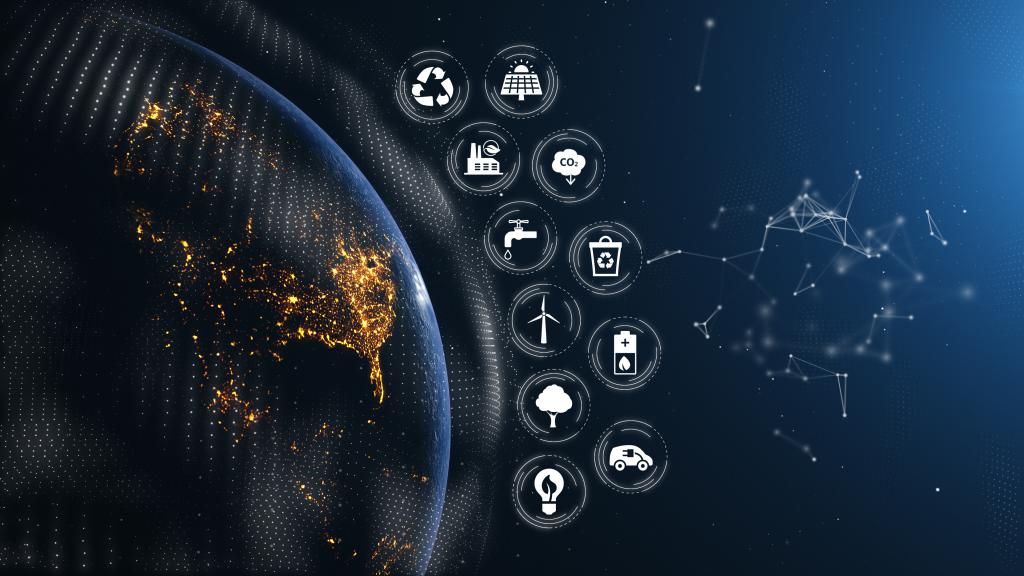Discussing the matters relating to the future of Europe's energy mix was the main objective of the debate organised by Euractiv in cooperation with the Polish Electricity Association (PKEE). The meeting, attended by the European Union officials and the representatives of energy sector associations took place on the 3rd of December 2020.
Adam Guibourgé-Czetwertyński, Deputy Minister of Climate and Environment who opened the event, emphasised that the energy sector is currently developing very innovative solutions that will be able to change the way we consider existing energy systems and technologies and which will be able to significantly contribute to the achievement of the energy and climate objectives. - In my opinion, only the truly technologically neutral approach, which takes into account different starting points of various Member States, can allow us to reach our common goal - he noted. - As we are at the beginning of the journey towards climate neutrality, I would like to encourage all the decision-makers to avoid narrowing the transition to only a few technologies - he added. Nevertheless, it is worth pointing out that only a technologically neutral approach that takes into account the different starting points of the various Member States will enable us to achieve a common goal - he noted. - In view of the fact that we are now only at the beginning of the journey towards climate neutrality, we should avoid narrowing the discussion on how to achieve the transition to just a few technologies – he added.
During the high-level panel, its participants - Helene Chraye, Head of Unit ‘Clean Energy Transition’, DG Research & Innovation, European Commission, Pietro Menna, Policy Expert, DG Energy, European Commission, Gilda Amorosi, Head of Energy Policy, Climate & Sustainability, Eurelectric, Christopher Hurst, Director General, Projects Directorate, European Investment Bank and Tomasz Dąbrowski, Director of the PKEE - discussed how to ensure the right financing for countries at different starting points, such as Poland, where the energy transition will require higher investments. Moreover, the debate focused on how the energy sector can make a better use of all existing technologies.
Tomasz Dąbrowski, Director of the Polish Electricity Association has stressed that from the beginning of the discussion on increasing the EU level of climate ambitions, the Polish Electricity Association has been calling for the framework, which takes into account the national and regional specifics of the Member States’ economies and energy mixes. - The aim of this approach is to ensure that no one is left behind in transition and that the EU framework provides us with tailored solutions necessary for decarbonisation - he clarified. According to Director Dąbrowski the development of all renewable energy technologies is important to bring the benefits of clean energy to the EU’s citizens and businesses. – The Member States and energy companies should be given a freedom of choice as to which technology is the most suitable for their regional circumstances and particular business models. I believe that the EU regulations in this regard should remain technologically neutral as far as possible - he said. – he clarified. - Member States, and consequently energy companies, should be left free to choose which technology is most suitable for their local circumstances and specific business models. I believe that EU legislation should, as far as possible, remain neutral in this aspect - he said.
The Director of the PKEE noted that the financial framework needs to provide a wide range of instruments aimed at supporting the Member States at each level of their advancement in the transition. - These funds need to support the shift from coal-based systems, development of renewable energy production as well as solutions for all sectors of the economy. Only such approach will make the transition happen - he explained. These measures should subsidise the move away from outdated technologies, the development of renewable energy sources, as well as solutions for decarbonisation in all sectors of the economy. For only such an approach will ensure that climate neutrality is genuinely achieved in the future. - he explained.
More information:
EURACTIV - Which technologies should be in the EU’s climate action toolbox? https://bit.ly/3gqnsmJ Landing page: https://bit.ly/3lxNxS4
Video: https://bit.ly/3ohAiq9 https://bit.ly/36U7myC
Event page: https://bit.ly/3lxNxS4
Video: https://bit.ly/3ohAiq9

